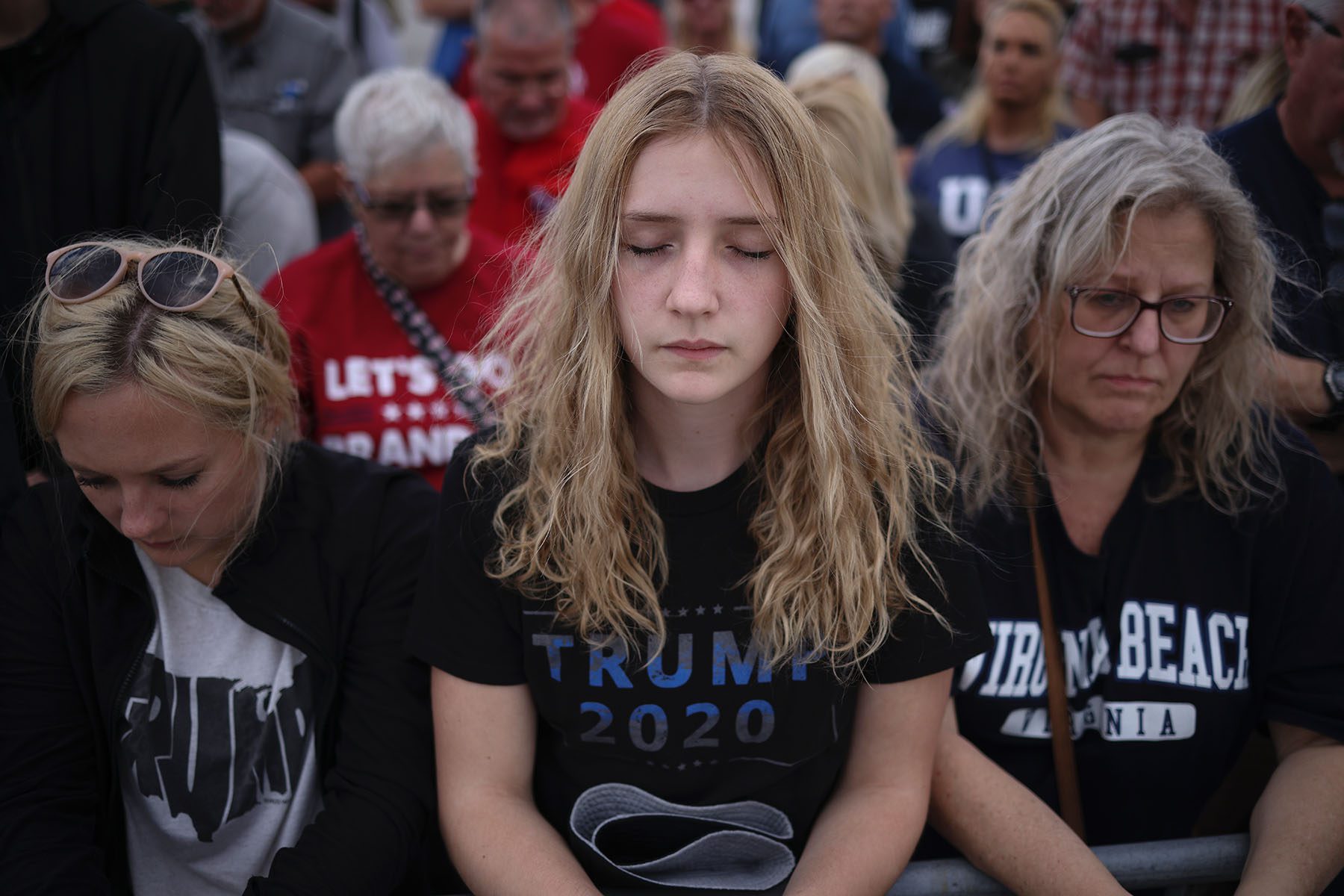We’re answering the “how” and “why” of politics news. Subscribe to our daily newsletter.
Nearly 1 in 4 women — and almost half of Republican women — don’t trust the results of national elections, according to a new poll from the Women & Politics Institute at American University and the Barbara Lee Family Foundation.
The Gender on the Ballot survey released this week looked at women voters’ attitudes and showed just 55 percent of Republican women trust the results of national elections and 66 percent trust local elections.
Sixty-three percent of independent women trust national elections and 72 percent trust local elections. For Democratic women, confidence is much higher: 88 percent trust national elections and 89 percent trust local elections.
Election disinformation has spread in recent years, fueled by former President Donald Trump’s attempt to overturn the 2020 election results and encouragement of an insurrection that led to violence at the U.S. Capitol. As he mounts another run, Trump continues to share disinformation about elections that is often amplified by his supporters.
Amanda Hunter, executive director of the Barbara Lee Family Foundation, said it’s important for people of all political ideologies to address election mistrust.
“Regardless of partisanship or background or belief system, everyone should be concerned when there is a lack of trust in elections,” she said. “That obviously affects voting and the health of our democracy.”
Women voters overall trust women in elected office more than men. Seventy-eight percent said women candidates better understand the challenges they face and what it would take to help. Seventy-four percent said more women in political office would help in dealing with the country’s problems.
Forty-one percent of women also said they distrust men in election office, a slight drop from 2022 — but still nearly double the distrust they have for women in elected office (22 percent, down from 28 percent last year).
Betsy Fischer Martin, executive director of the Women & Politics Institute, doesn’t know if more women leaders will mean greater trust in elections. But she pointed to the growth of women in elected office in recent years with a record number in Congress and in governor’s offices.
“The more that we are able to see women leaders solving problems, bringing people together — that just instills more confidence that people have about women in office,” she said.
Younger women and Democratic women in the poll say casting a ballot increasingly comes down to ideology rather than gender. And more than 4 in 5 women believe there will be a woman president in the next 20 years — but they’re not necessarily prioritizing it for 2024, with just 42 percent saying it will be important for a candidate next year to be a woman.
Benenson Strategy Group conducted 811 online interviews from February 10 to 15 among women who are registered voters, including an oversample of younger women ages 18 to 25. The margin of error is 3.4 percent.
Women without a college degree were more likely to distrust elections, according to the Benenson data. Thirty-nine percent of women without a college degree don’t trust national election results much or at all, compared with 12 percent of women with at least a college degree. There’s more trust in local elections, but the divide persists: 28 percent of women without a college degree don’t trust local elections much or at all, compared with 14 percent of women with at least a college degree.
Of the 45 percent of GOP women who do not trust national elections much or at all, the majority of them (79 percent) are non-college educated.
Other polling has also shown that conservative voters are more likely to mistrust elections. The Pew Research Center released polling in October that showed that, since 2018, registered voters who supported Republican congressional candidates had become less confident in how elections will be administered.
Younger and independent voters are more likely to fear that both major parties are dominated by extremists. Martin worried about the implications.
“That can be a turn off politically for women, to just feel, where’s their place in the party on either side, if you’ve got these extremes happening?” she said. “Where do you fit in if you are more in the middle?”
-
More from The 19th
- Oklahoma legislature censures nonbinary lawmaker as proposed gender-affirming care bans move forward
- ‘I can’t wait anymore’: This 25-year-old organizer is betting on young and rural voters to flip North Carolina blue
- Americans don’t know if abortion is legal in their state, new poll shows
The 2024 presidential race is just beginning to take shape. Democratic President Joe Biden is widely expected to announce a reelection bid, and on the Republican side, other candidates are expected to join Trump and former South Carolina Gov. Nikki Haley in the field.
The Gender on the Ballot survey captured women’s pessimism about the economy and their anxiety about the country’s direction, offering a glimpse at an array of issues facing women voters about a year before 2024 several general election primaries kick off.
Sixty percent of women voters say they’re feeling more burned out in the past couple of years, up from less than half last year. This was especially pronounced for young women and parents of young children. Black women have experienced a significant increase in burnout.
Sixty percent of women also expressed pessimism about the economy, and 56 percent said their personal financial situation had worsened in recent years — up from 50 percent in 2022 and 39 percent in 2021.
“Overall women are facing significant challenges, and pessimism about the economy as a whole has remained steady,” Lindsay Vermeyen, senior vice president at Benenson, said in an email. “The personal financial situations of specific audiences are being hit harder than others (i.e. younger women) and due to inflation women have cut back on smaller luxuries and almost half have even cut back on necessities like groceries.”
Last year’s poll found more women were disengaging with politics, but that’s shifted. About 1 in 3 women who were polled say they talk to their friends and family about politics weekly. And the majority of women think the 2024 presidential election will be more important than most elections, an eight-point increase from how they viewed the 2022 midterm elections.
“It seems to me that women don’t have the luxury of dropping out of the political process given how all of these issues are affecting their lives,” Hunter said. “So while women are paying attention and they’re anxious, it seems that they’re going to vote because politics are showing up in their household and at their front door every day.”
Disclosure: The Barbara Lee Family Foundation is a financial supporter of The 19th.







